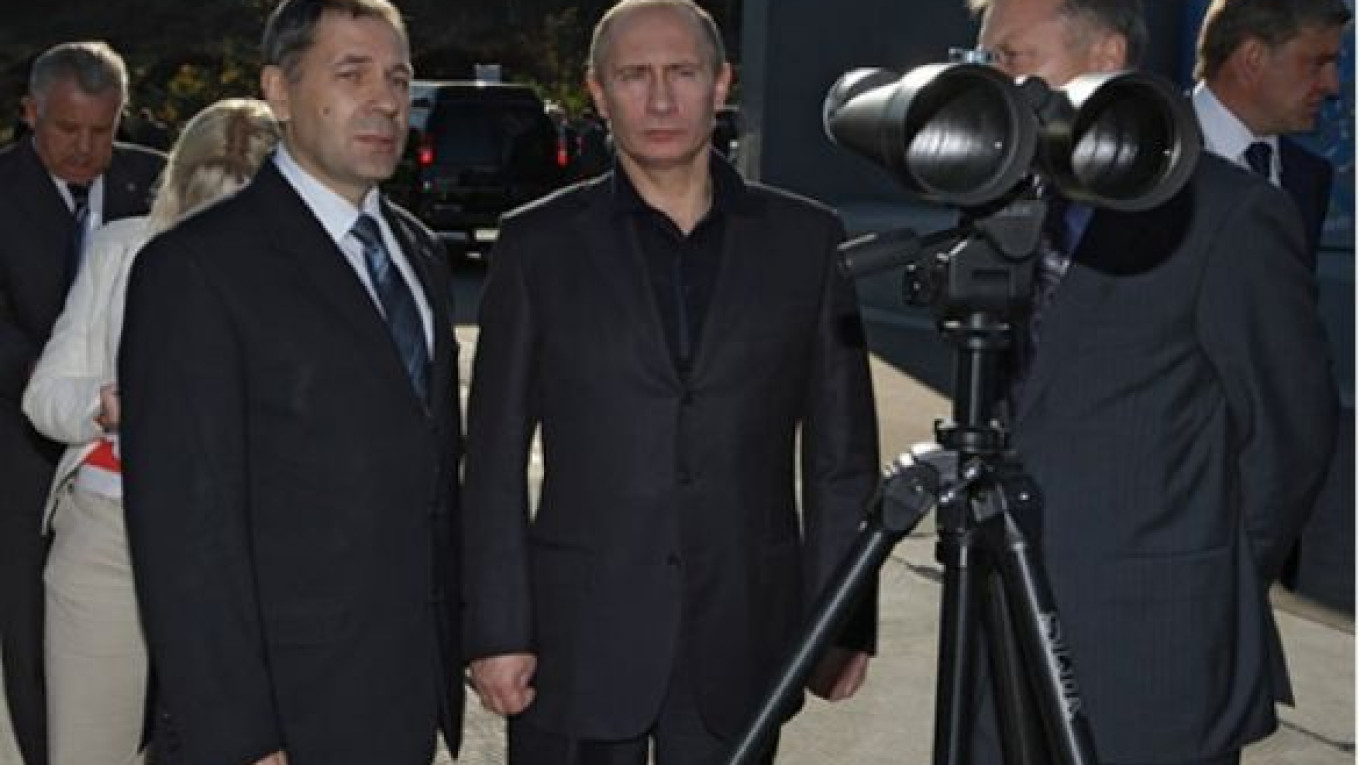The impoverished Russky island in the Far East will be developed as a special economic zone to promote tourism after it hosts the 2012 Asia-Pacific Economic Cooperation summit, Prime Minister Vladimir Putin said Wednesday.
Preparations for the summit have turned Russky Island into the country's second-biggest construction project, following work for the 2014 Sochi Olympics. But the government has been struggling to find a use once the summit is over for the hotels, conference centers and other infrastructure being built on the lightly populated island.
Initially, the state considered locating one of four federal gambling zones there. In 2008, it was decided that Russky would be turned into a university center for the Russian Academy of Science's branch in the Far East.
Putin personally visited the island in October to inspect preparations, which have been plagued by delays and fears of cost overruns. He said at the time that the government would not cut the 202 billion rubles ($6.9 billion) in federal money allotted for APEC-related construction.
The single largest construction project for the summit is a 3.1-kilometer bridge connecting Russky, which is home to about 5,000 people, with the Primorye region capital of Vladivostok.
Speaking at a government meeting Wednesday, Economic Development Minister Elvira Nabiullina told Putin that the island — which was closed to visitors during the Soviet period — had "lots of potential for tourism [and] a spectacular location," according to a transcript posted on the government web site.
A Message from The Moscow Times:
Dear readers,
We are facing unprecedented challenges. Russia's Prosecutor General's Office has designated The Moscow Times as an "undesirable" organization, criminalizing our work and putting our staff at risk of prosecution. This follows our earlier unjust labeling as a "foreign agent."
These actions are direct attempts to silence independent journalism in Russia. The authorities claim our work "discredits the decisions of the Russian leadership." We see things differently: we strive to provide accurate, unbiased reporting on Russia.
We, the journalists of The Moscow Times, refuse to be silenced. But to continue our work, we need your help.
Your support, no matter how small, makes a world of difference. If you can, please support us monthly starting from just $2. It's quick to set up, and every contribution makes a significant impact.
By supporting The Moscow Times, you're defending open, independent journalism in the face of repression. Thank you for standing with us.
Remind me later.


